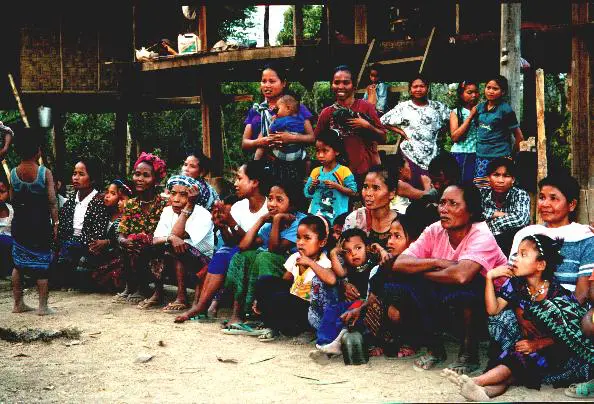The NCEA contributed to the International Advisory Group which was established to assess the World Bank's handling of environmental and social issues in hydropower projects. Three advisory reports were issued on the case of the Nam Theun 2 hydropower project.
In order to facilitate the decision making process and provide a different perspective, the WB established an International Advisory Group (IAG). The objective in establishing the group was to obtain guidance on how the WB can improve its handling of environmental and social issues in the hydropower projects it supports world-wide. As an initial phase of this activity, the IAG was to provide an evaluation of the WB’s handling of these issues in the proposed Nam Theun II project in Lao PDR.
The Commission was asked to form a working group to (i) support Mr D. de Zeeuw in carrying out his tasks as convenor of the IAG and (ii) advise the DGIS on the process and substance of the IAG. On balance, the conclusion of the IAG in its first report is that the benefits of the project, in terms of development, alleviating poverty and environmental protection, outweigh the negative aspects:
- There will be substantial environmental impacts, although these appear to be offset to a large degree by the planned protection of a biodiversity hot spot of global importance.
- Resettlement exercises are always fraught with difficulties, but the plan for this one is comprehensive and appears feasible if substantial efforts are made by all parties.
- Improved livelihood options and better social services for affected groups will not be easy to deliver, but are crucial to the wider objectives of the project and must be addressed as such.
- Success in all this is not guaranteed. Pulling the several action plans together into an integrated cross-sectoral approach is vital; and it is essential to obtain binding, explicit long-term commitments from the Lao political leadership on using project revenues to alleviate poverty and on offsetting biodiversity impacts and protecting the catchment and associated areas. The project should not proceed without such formal undertakings.
- There must be provision for regular assessment of progress; monitoring and evaluation of all aspects, including delivery of undertakings by all parties, should be a component of the project throughout.
In the light of the last recommendation, the IAG reassembled in November 1998. The aim of the visit was to provide a brief update on and assess developments since the IAG’s last visit, check whether the major recommendations of its first report had been addressed, make an evaluation of the current situation and make recommendations for the future.
The IAG concluded that:
- the serious global financial and economic downturn has affected the Lao economy at all levels;
- a project designed to produce one tenth of Laos’ income has to be reassessed in the context of these wider developments;
- once the macro-economic indicators start to rise, the social, environmental and general developmental case for proceeding to appraisal is strengthened, not weakened by global developments;
- if the project does not proceed the prospects for the Laos economy are not good: it will languish indefinitely, the opportunity to make a dent on poverty will decline, pressures to continue unsustainable logging will grow and the biodiversity in the project area, which is of global importance, will be irretrievably damaged;
- progress has been made on the ground, particularly with the legislative framework for the project and the introduction and testing of alternative livelihood options;
- elements of concern are the slow pace of capacity building and decentralization, the occasional inability to translate the high level of political commitment to the project into concrete decisions and allocation of responsibility and resources, the lack of progress in seeking World Heritage status for the catchment and associated areas, the lack of a national forest resource management regime and a number of unresolved environmental impact issues;
- also of concern is the prospect that momentum may be lost in the villages if the World Bank or other funding is not forthcoming to bridge resource gaps in early 1999. The IAG has the impression that the people’s expectations of the project may be too high and may stifle local initiative.
As the bank moves towards the pre-appraisal and appraisal phases of the project, the IAG argues that as prospects on the social and environmental fronts deteriorate with the passage of time, the case for proceeding becomes more compelling. The IAG draws attention to a number of recommendations in its second report to consider as the project preparations go ahead.
In 1999 the progress on the project was not very encouraging, mainly due to tariff negotiations which seem to have reached an impasse. The IAG maintained contacts with the Government of Laos, the project developers and the World Bank. The expectations are that early 2000 there will be more news on the tariff deliberations and it is quite possible that an agreement would be reached. Scheduling a next IAG mission will depend on the positive outcome of these negotiations, because this will trigger the environmental and social work to be completed.
Advisory reports and other documents
19 Aug 1997: Other
22 Sep 1998: Other
06 Apr 2001: Other

